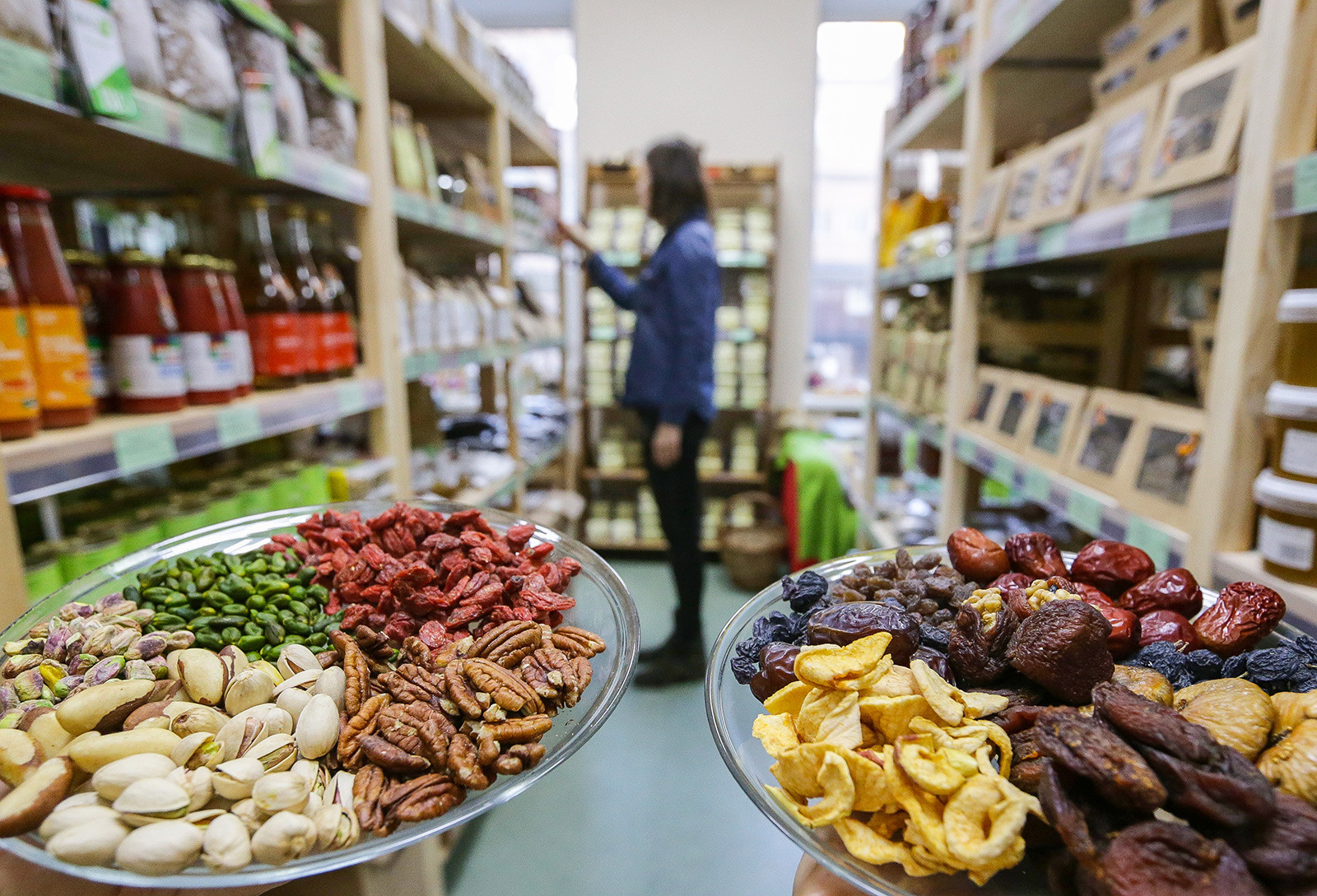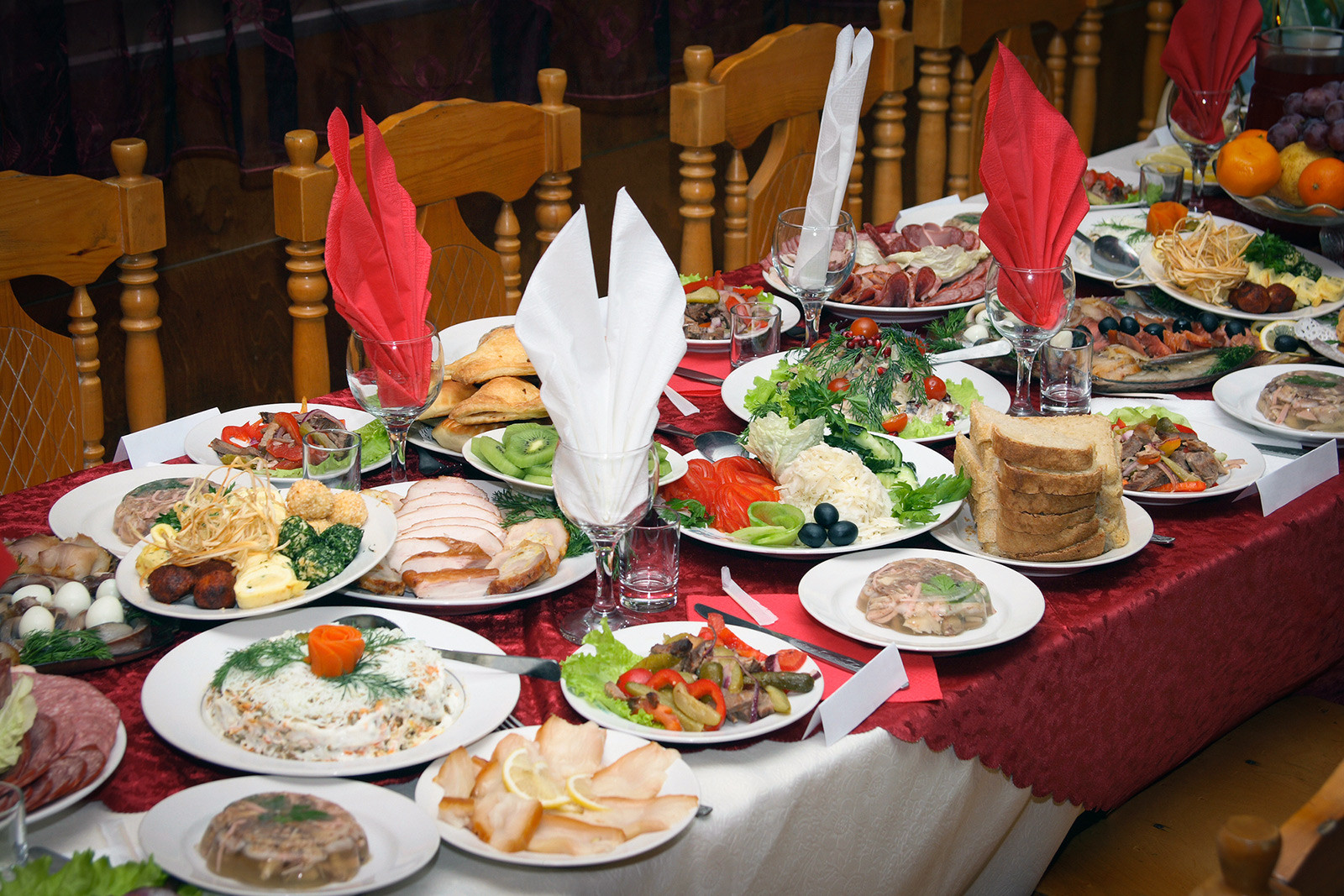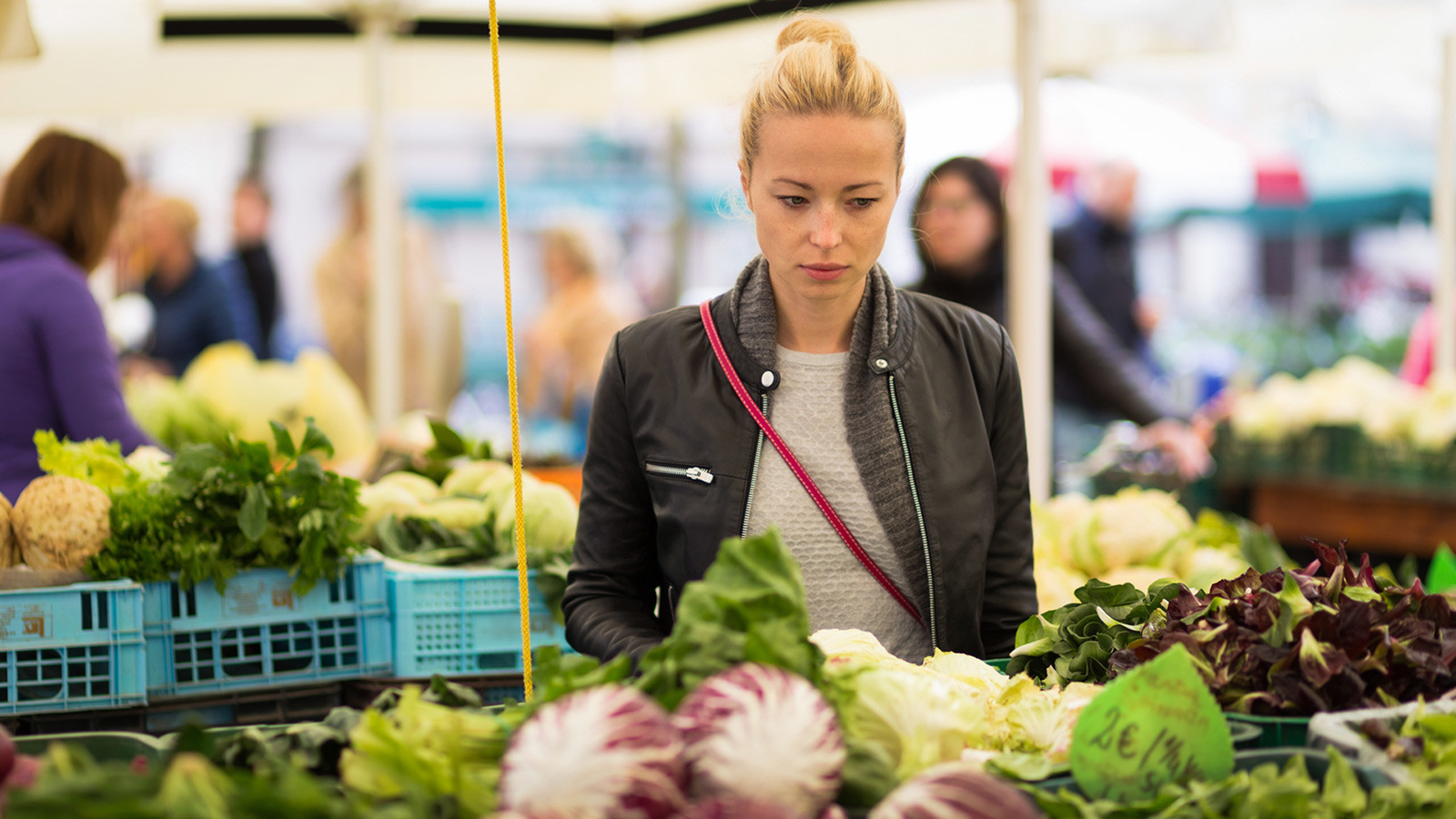
There is no exact figure on the number of vegetarians living in the country, but it’s thought they amount to about three to five percent of the population, with the majority living in big cities, mainly Moscow and St. Petersburg. Vegans are also included in this estimation.
The reasons for choosing such a lifestyle vary: some people just don’t like the taste of meat, some think abstaining from eating animals is better for their health, while others do it out of ethical reasons.
“I didn’t like how meat tasted from childhood, but I continued to eat it simply because I was served meat dishes everywhere - at home, at school, at university, in cafes and restaurants,” says Olga from the Russian city of Serov - she is now a vegan. Then she met a vegetarian and decided to follow his example for a while. She eventually started eating meat
“The ethical side of the question came to me a bit later and quite suddenly,” she remembers. When she was living in India she began to recognize the value of
While the number of vegans and vegetarians remains pretty small in Russia, some celebrities raise awareness. Russian vegetarians include the founder of the country’s leading social media platform VK, Pavel Durov, and the country’s most popular naturalist Nikolai Drozdov, 81, who hasn’t eaten meat for over 45 years! (By the way, did you know that Leo Tolstoy was also a vegetarian?)

“I became a vegetarian five years ago and a few months later I moved to Nizhny Novgorod for a year. There it was impossible to find anything for such a lifestyle, excluding tofu which I found in a French supermarket,” Erwann from France recalls. “Yet, now I hear that the situation there has changed for the better and some new stores have opened. In Moscow everything is much easier: here one can find many vegetarian shops (Jagannath is like heaven) and restaurants.”
Russian cuisine may be dominated by meat but there are still many delicious dishes suitable for vegetarians. Members of the Orthodox church undertake fasting and abstain from meat, eggs, fish, seafood, and all dairy products during periods of the year: vareniki (traditional dumplings stuffed with potatoes, cabbage, cottage cheese, or berries), meatless variants of
The public in Russia, especially outside of big cities, still harbors a pretty conservative view on not eating meat. According to a 2018 poll, every fifth respondent (20 percent) believes such a diet is good for the health, while 39 percent think the opposite. The widespread belief among the latter is that a vegetarian diet might cause health problems due to a lack of nutrients and protein found in meat.
Vegetarians often face questions from relatives, friends, colleagues or even random people interested in learning why they don’t eat meat. It’s also not uncommon for people to try and convert vegetarians to meat eaters, claiming animal flesh is an essential part of the human diet.
“If there’s a vegetarian at some gathering, the first 30 min of the discussion will be focused on him or her! It’s like telling someone that you don’t drink alcohol: everyone thinks that you’re either on antibiotics, a recovering alcoholic, or pregnant - no other explanation will work!” says Alexandra, a journalist from Moscow. “If you say you’re a vegetarian, you’d be considered a psycho or someone who is simply chasing a trend.”
The older generations can be guilty of not taking vegetarianism seriously and may go ahead and serve their grandchildren meat, regardless of whether they want it or not.
“My neighbors often invite me for a dinner, but even though they know quite well that I’m a vegetarian they still regularly offer me meat dishes,” says Erwann. “Recently they made

“One has to eat meat to survive the winter” is one of the most popular arguments that vegetarians hear in Russia on a day-to-day basis, especially from the older generation. According to Maria Dobrovolskaya from the Russian Academy of Sciences (link in Russian), agriculture in the north of the country developed slowly during the 12th and 13th centuries when the Little Ice Age was beginning, so people had no choice but to eat what was available: meat and fish.
Yet modern personal accounts show that surviving without meat is by no means impossible. Tamara, 32, a university professor from Moscow, says it hasn’t been a problem for her. As a former meat-lover, she switched to a vegetarian diet two years ago due to ethical beliefs and hasn’t had any difficulty living without meat during the winter.
“There are all kinds of products available in Moscow’s stores, but the question of clothing poses some problems,” she says. “Recently I learned that even goose down jackets are made non-ethically with birds being plucked of their feathers while alive, so now I have a problem with finding something for the winter. ”

Others note that being a vegetarian in Russia means constantly telling everyone about your eating habits. “I have a vegetarian friend who complains about the necessity to remind people about her not eating meat every time she’s in public,” says Oleg from Moscow. “Recently at a
Another problem, raised by Olga who has a seven-year-old son (a healthy vegetarian boy), is coping with maintaining her child’s diet while he’s at school or with relatives: “It might be hard sometimes to avoid freaking out and not ruin personal relationships!”
Despite all that, everyone acknowledges that the situation is changing for the better. “In big
If using any of Russia Beyond's content, partly or in full, always provide an active hyperlink to the original material.
Subscribe
to our newsletter!
Get the week's best stories straight to your inbox